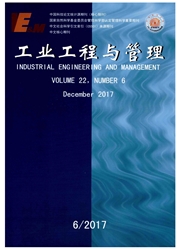

 中文摘要:
中文摘要:
以中国2007-2012年间A股市场制造业上市公司发生CEO变更的企业为研究对象,以CEO自主权为解释变量,以高管薪酬水平为因变量,应用基于配对样本分析的多元回归方法开创性地研究和比较了不同资历的CEO运用其自主权操纵高管薪酬的机理与动机。研究发现,新任CEO自主权与高管薪酬的相关性显著低于资深CEO,且新任CEO自主权能够显著促进高管薪酬与公司绩效的正相关性以及高管薪酬与知识合作需求的正相关性,而资深CEO自主权则在一定程度上弱化高管薪酬与二者的正相关性。该结果证实,新任CEO和资深CEO虽然都能够通过其自主权实质性地操纵高管薪酬,但新任CEO是以利企性的间接操纵效应为主,而资深CEO则是以利己性的直接操纵效应为主。
 英文摘要:
英文摘要:
This paper initiatively investigated the manipulation effects of CEO discretion on executive compensation for CEOs with different seniorities. By taking the method of multiple regression analysis based on the data set drawn from the paired-samples, which were selected from the Chinese manufacturing listed companies who changed their CEOs over the period of 2007- 2012,the paper compared such manipulation effects between fresh CEOs and senior CEOs. In the regression model,managerial compensation level was taken as the dependent variable, while CEO discretion was taken as the explaining variable. Results show that the relation between CEO discretion and executive compensation is much weaker for fresh CEOs than that of the senior CEOs. The fresh CEOs ' discretion can not only enhance the positive relation between executive compensation and firm performance, but also advance the positive relation between executive compensation and knowledge coordination needs significantly; while the senior CEOs' discretion can weaken the above two positive relations. Therefore, it can be confirmed that though fresh CEOs and senior CEOs both can manipulate executive compensation to a good degree by performing their discretion, fresh CEOs do this mainly from the firm-serving motives of maximizing the benefits of the companies,while senior CEOs do this mainly from the self-serving motives of pursuing the maximization of their private interests.
 同期刊论文项目
同期刊论文项目
 同项目期刊论文
同项目期刊论文
 期刊信息
期刊信息
